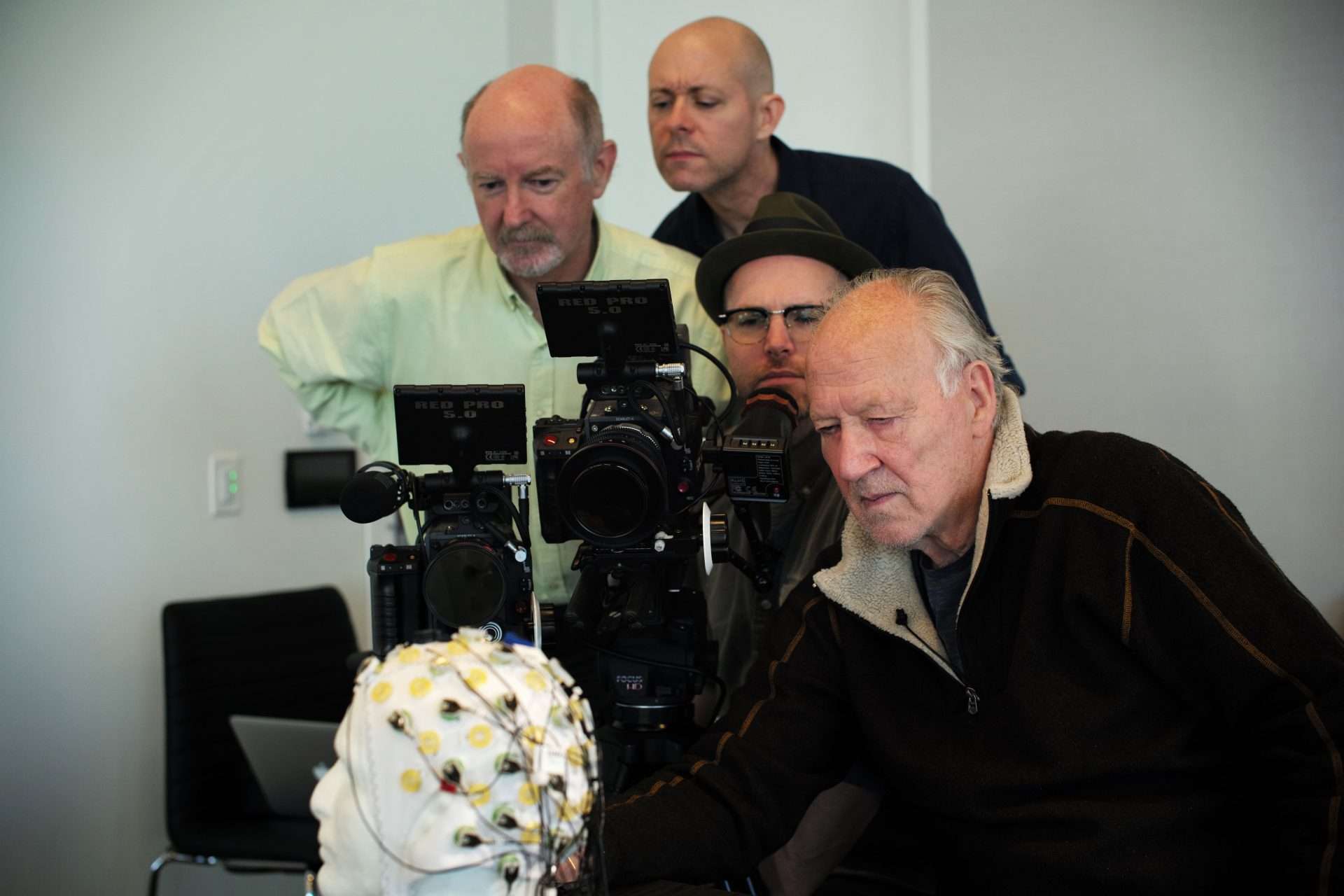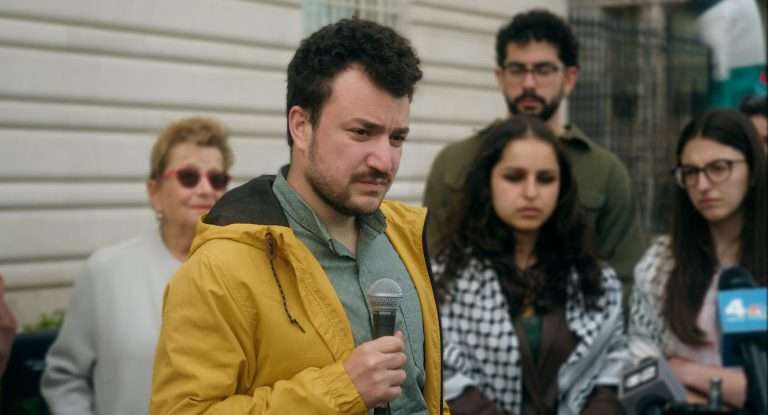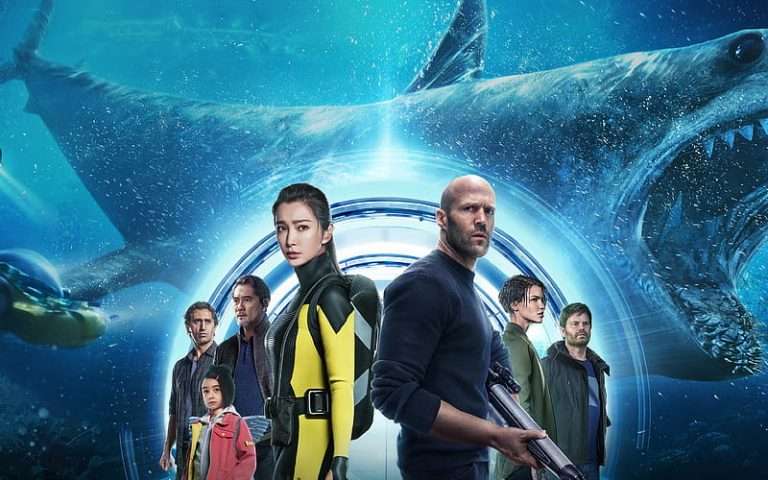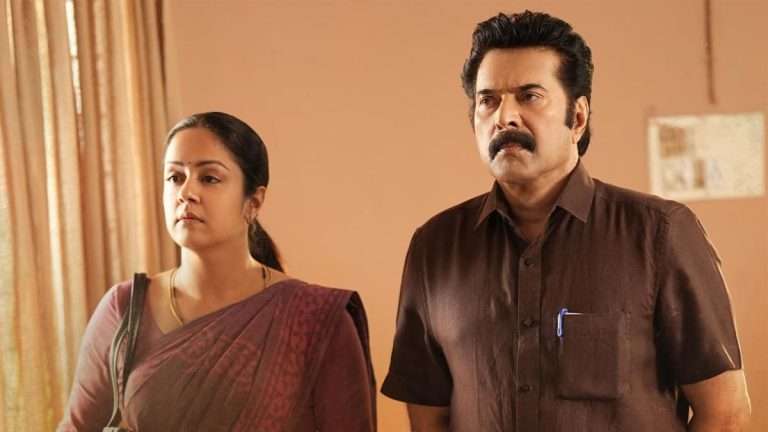Werner Herzog is an inquisitive man. We have witnessed the results of curiosity through all his films. They reflect his deep interest in a subject no matter what. Besides the topics he chooses to discuss, his voice remains one of the most appealing aspects of his documentaries. His cadence is as iconic as David Attenborough. While these elements may seem irrelevant to the film, they are far from being so. After all, much of Herzog’s new documentary, “Theatre of Thought” is about thoughts and communication.
Through this film, Herzog examines the core of our communication that exists in our neural systems and in all sorts of organisms. His thick German accent paired with his deep and innocent curiosity makes it even more fascinating. It naturally affects how we perceive the film. Throughout the film’s duration, he interviews experts in the field of neuroscience in that same accent that sometimes makes things a bit incomprehensible due to an accent barrier. As a viewer, you may need to pay attention to each word he speaks to make sense of his thought process.
Herzog’s knowledgeable guests go through a similar process of dissecting the manner of communication of different living beings, whether it’s a tiny worm, a grey parrot, or a chain of neurons within one’s body. Through their knowledge, gathered, gained, and cultivated over multiple years of logic-driven research, they share insights into their complicated processes. Through them, Herzog hopes to dissect how far we have come to realize the intricacies of thought processes to fight the challenges of manipulating, decoding, or controlling them.
Although intriguing and admirable, the efforts of these scientific minds may as well be used by uber-wealthy and influential folks for their personal gain. We are already witnessing the effect of social media on our minds and our life philosophies through the stark cultural shift across the globe. In this near-dystopian scenario, how are we supposed to navigate our future? With the pace at which these researches are growing and improving every single day, how different will our lives be? Herzog tries to decode these existential quandaries through his style. He asks these experts questions that seem a tad silly or irrelevant on the surface.
During one of his interviews, Herzog speaks with an esteemed professor and her award-winning husband about the role of music and art in our lives. He asks these scholars about a grey parrot famous for being able to answer through human language. On the surface, it seems like a sign of comprehension on the parrot’s side. In reality, the parrot does not understand what it says. It makes sense of things in its own language, similar but not identical to how humans learn to speak in a foreign language. While trying to shed light on Herzog’s whimsical queries, the film often feels sterile with information dumped on the viewers every minute besides a few bits of silence.

The documentary approaches its core themes in a rather dry, informational manner that is supposed to educate us about the advancements in neuroscience. Herzog also keeps the footage of uncomfortable silence right after he stops asking them questions. Still, these minor stylistic choices reveal more about these subjects. It takes us further towards understanding how these eternally active minds act when they are left to be still and idle.
Despite the film’s dryness, Herzog keeps us interested in its queries because of the things it leads us to contemplate. Of course, the experiments he discusses are interesting on their own. Moreover, the way he tries to explore the observations in simple terms without a holier-than-thou approach is admirable. As these experts proudly present their many years’ worth of research, Herzog dissects it in a relatively accessible manner.
Almost all his guests lead their work with a curiosity quite similar to the geeky billionaires we have seen being turned into monsters overnight. Those intelligent people succumbed to their vices. They believed the world’s protest against them was a sign that they were doing something right. However, most of the speakers that we meet in this documentary are keen on maintaining ethical practices. As a scientist points out, they wonder why people are curious about beings beyond the Earth’s sphere instead of learning ourselves better.
The fascinating part of “Theatre of Thought” is it is rarely self-contained and frequently stimulating. Any thought shared leads the viewers into multiple tangents, decoding their implications on their lives. If we’re speaking about researching the living being on the Earth, will that research be used strictly for the betterment of humanity as a whole? Or will it be used by a select few privileged people to control how others operate?
To further this chain of thought, Herzog also shows different ways of indoctrination from the past and the present. When a soldier takes a step in a specific way, is it out of their free will or a “Full Metal Jacket” style of strictly authoritarian intervention? So, should we look at the past to understand the way to the future? The documentary keeps us in this fascinating loop that is rewarding despite its dystopian undertones.


![KIMI [2022] ‘HBO Max’ Review: Cyber Thriller Presents Both Sides of the Technological Boom](https://79468c92.delivery.rocketcdn.me/wp-content/uploads/2022/02/KIMI-2022-768x432.jpg)


![Girl Picture [2022]: ‘Sundance’ Review – A radical albeit slight tale about sexuality, identity & growing up](https://79468c92.delivery.rocketcdn.me/wp-content/uploads/2022/01/Girl-Picture-1-768x432.jpg)

